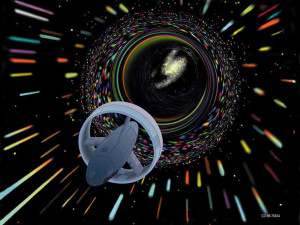Easter — Resurrection of the Lord | John 20:1-18 or Luke 24:1-12
Ideas on the Way to Resurrection
What if we don’t buy into this whole story about Jesus coming back to life? What if people made it up? Or what if we only believe it because of our upbringing, or fear of dying, or simply habit?
We wouldn’t be alone. There is plenty of precedent, maybe even including the original, odd, abrupt ending¹ of the first and oldest gospel, the Gospel of Mark. Women come to the tomb to add spices and perfumes to the body of Jesus, an embalming, only to find the tomb empty except for a stranger who tells them that Jesus has risen from the dead, and the women flee in fear and ecstasy. That’s it. No elaboration. No explanation.
 Yet the early Christians (they called it the Way² — still a better name, I think, after all the centuries) flourished. They did it without a systematic theology or chocolate bunnies. They didn’t know that we would call this celebration Easter, the celebration of the story that Jesus died, was laid in a tomb, and rose again.
Yet the early Christians (they called it the Way² — still a better name, I think, after all the centuries) flourished. They did it without a systematic theology or chocolate bunnies. They didn’t know that we would call this celebration Easter, the celebration of the story that Jesus died, was laid in a tomb, and rose again.
No painted eggs. No fake grass. No Easter egg hunt.
But what if we still can’t quite believe such a thing happened? What does God do with us, if there is a God?
God starts with us where we are, I think. Actually, if God is unbounded by the space-time fetters that define us, perhaps God starts with us where we are, where we have been, and where we will be, all at once.
And if we can’t quite accept that Jesus was resurrected, how about we just start with the idea of resurrection? It’s a pretty good idea — life where there was none, a new beginning, a fresh breath. Genesis.
What if we think of Christianity (the Way, if you like,) as faith in the idea of resurrection, a celebration of the notion that lives can begin again. Broken things can be mended. Lost things can be restored. New life can begin, and we don’t have to spend our lives shut away in some dark place, no matter whether we got there ourselves or were carried against our will.
Resurrection. That is something worth believing in, an idea worth holding onto. It’s reason enough to follow the Way.
And what of these astonishing claims that God was expressed in human form in this man Jesus, that this God-man allowed himself to die a cruel death at the hands of people like us, that afterward he rose from the dead? Surely if this happened, nothing stranger ever has?

It is interesting, the things we believe. Take Sea-Monkeys, dessicated brine shrimp that somehow return to life after being dried to dust. We watch them return to life, swimming in little plastic aquariums we order from comic books, and marvel. For fishing bait, my grandfather collected Catalpa worms (we called them Catawba worms, but they are the larvae of the moth Ceratomia catalpae.) He kept them in a box in the freezer. You could take them out later, let them thaw, and sometimes the things would begin to move again. It was peculiar, and amazing, and creepy.
Consider black holes in space, points of such dense gravity that even light itself is pulled inside. Unbelievable. Then there is the idea of a wormhole. Nothing to do with fishing, the Einstein-Rosen bridge kind of wormhole forms a tunnel through space-time. Conceptually, they are out there, though hard to locate — sort of like Easter eggs in space. We hear of such notions and nod, marveling.
God, though? Resurrection? We find those things hard to believe in, but embracing science doesn’t mean we have to let go of the mystical — they serve two different purposes, two differing pursuits, two ways of trying to understand the universe, what it is, what it means.
Maybe for this Easter, even if we are not quite far enough along the Way to embrace such possibilities, we can at least look with wonder at notions of grace scattered like Easter eggs along our path. Redemption. Renewal. Resurrection. This Jesus who says, “Behold, I make all things new.”
Those are thoughts worth finding.
____________
¹ The earliest manuscripts of the Gospel of Mark end at verse 16:8 — “So they went out and fled from the tomb, for terror and amazement had seized them; and they said nothing to anyone, for they were afraid.”
² See Acts 9:2


